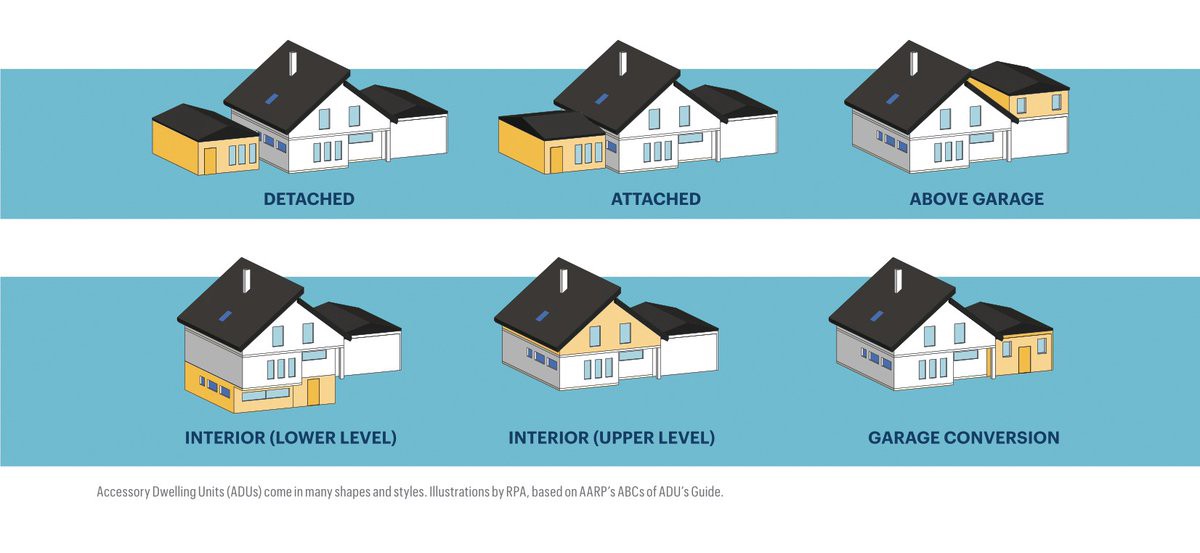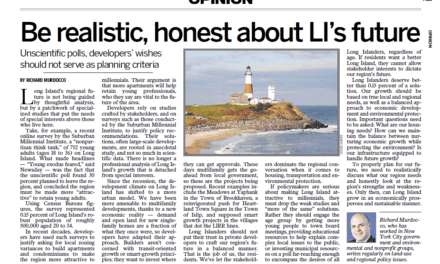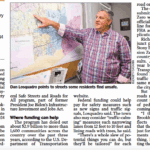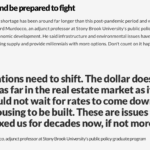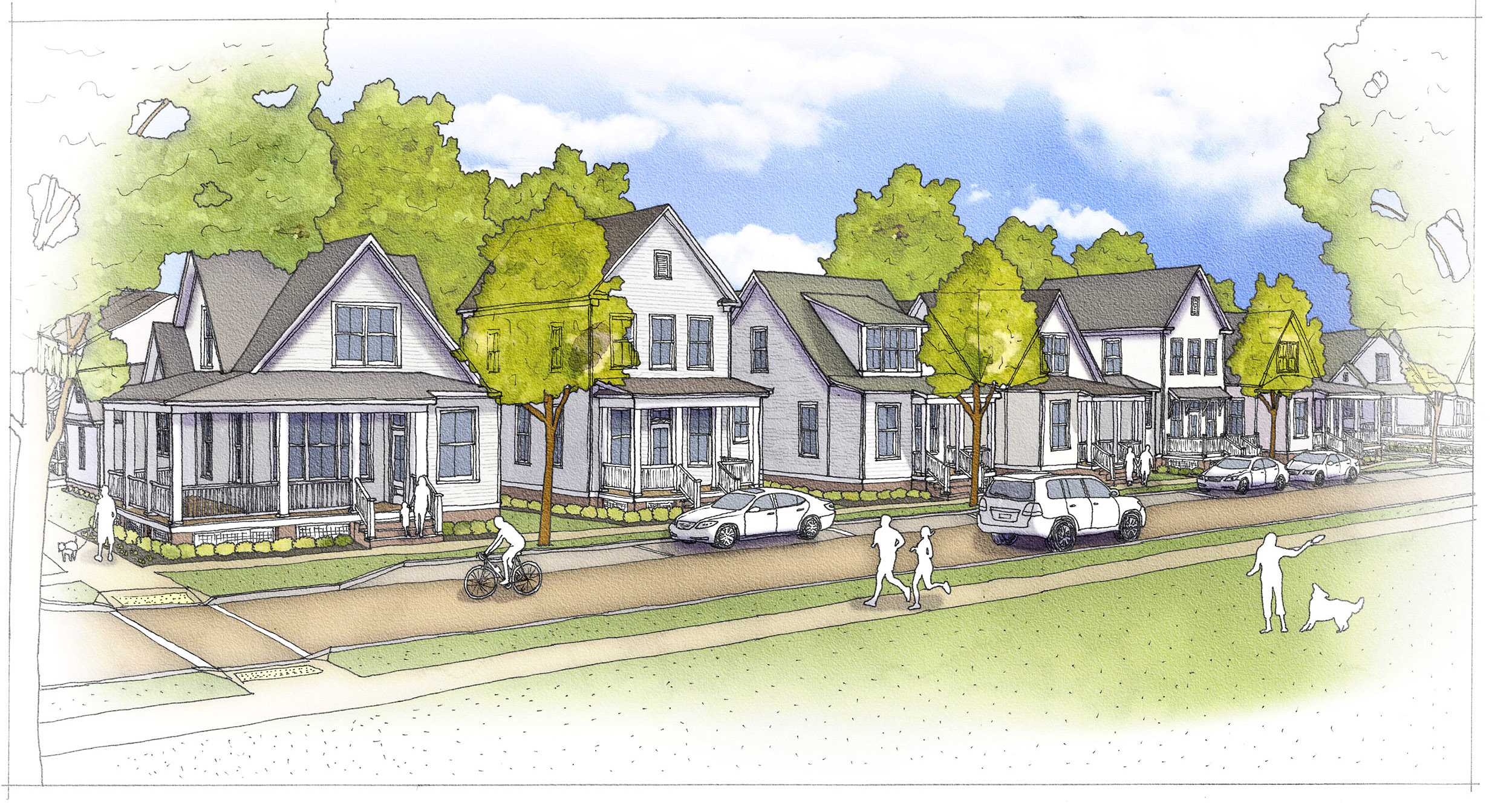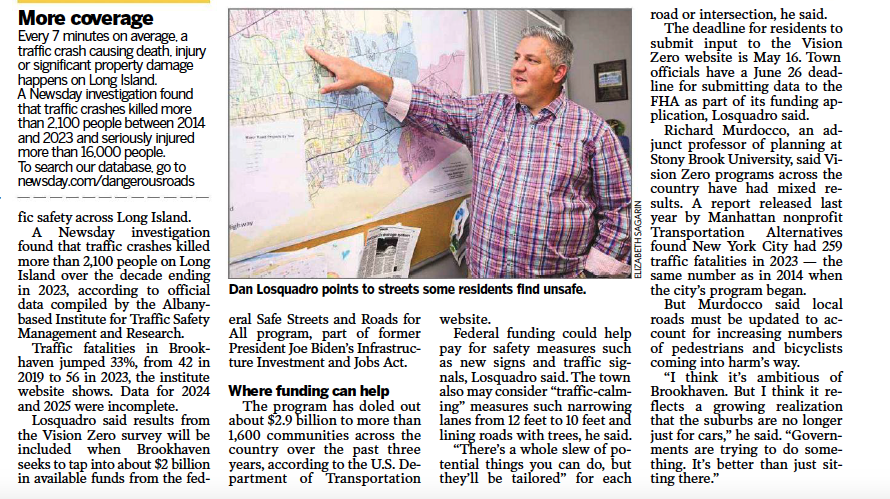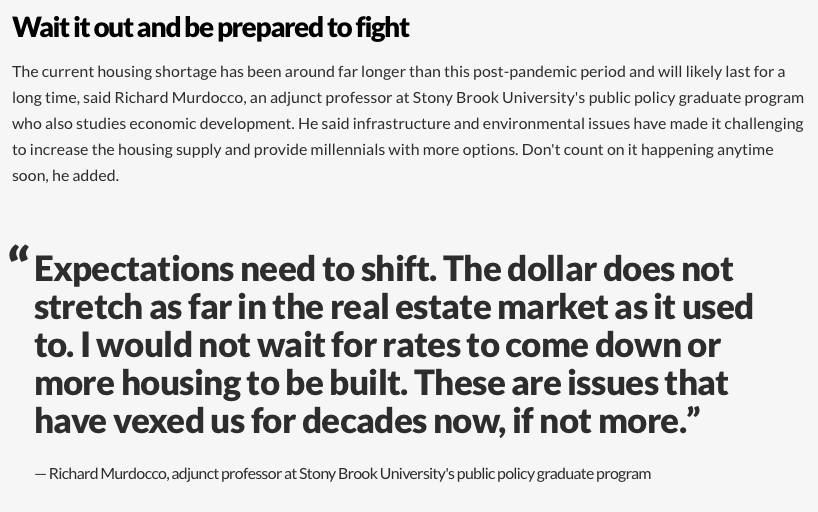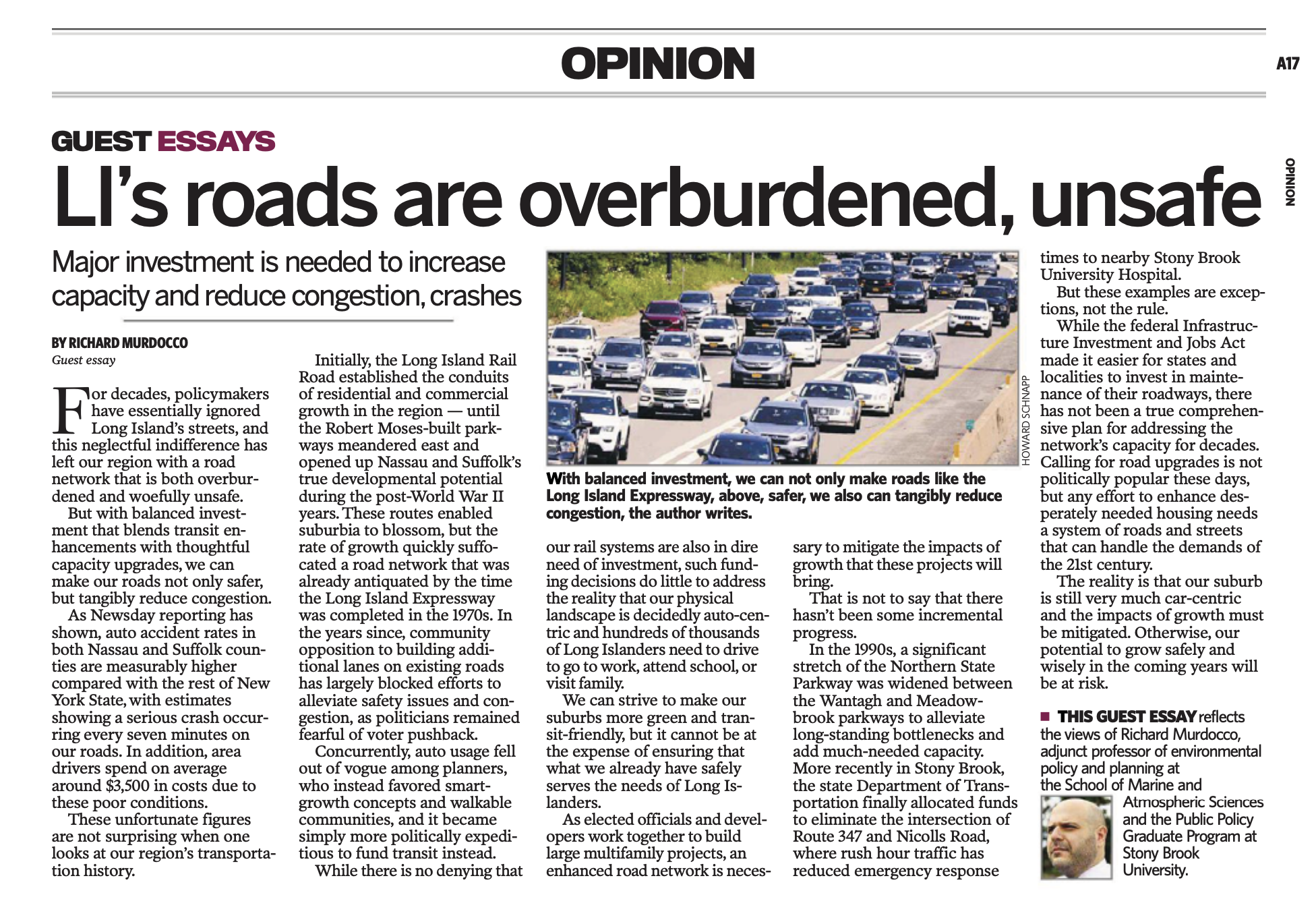The following was exclusively published by The Foggiest Idea on February 14th, 2022. Interested in supporting The Foggiest Idea’s award-winning reporting and analysis? Click here.
BY RICHARD MURDOCCO
New York Governor Kathy Hochul’s push to legalize Accessory Dwelling Units (ADUs) by authorizing the creation of supplemental residences within single-family zoned neighborhoods is a ham-fisted attempt to break the logjam of housing affordability here on Long Island and in the state’s other suburbs.
The proposal, neatly tucked within Democratic governor’s 2022 budget, would allow the creation of mother-daughter style units, sometimes called “granny flats”, as well as stand-alone accessory apartments on single-family plots, such as backyard cottages and separate garages. To cut through the usual bureaucratic red-tape blocking these kinds of apartments local land-use control would be superseded by broad, state-backed developmental allowances.
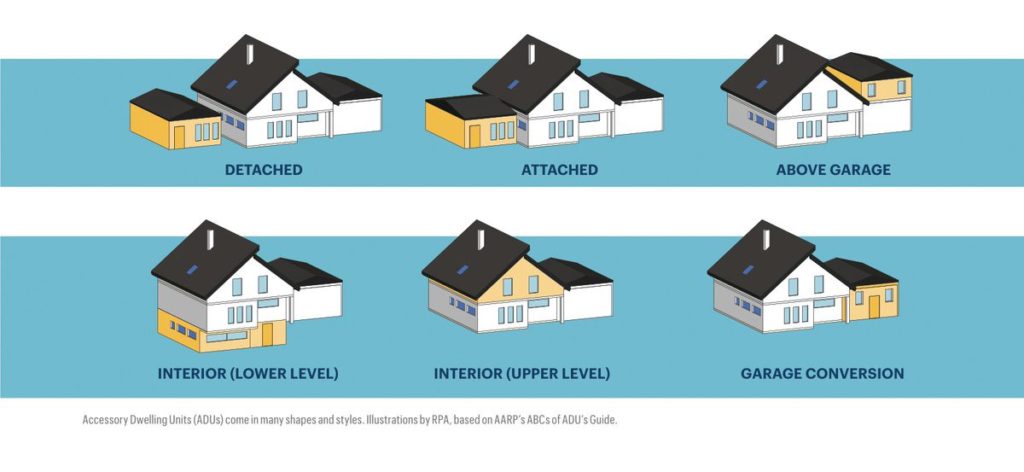
Pictured: Various styles of Accessory Dwelling Units (ADUs). Streamlining the process of creating the accessory units has gained traction in Albany. (Source: Regional Plan Association)
The Democratic governor’s intention is to give the tepid affordable housing supply a much-needed jolt. As she said in her State of the State Address on January 5, “We’ll fix outdated land-use laws that hold back housing supply.”
Her plan is one of many state-backed efforts to solve the long stagnant housing puzzle that has vexed policymakers for years.
“The Tri-state suburbs have not met the housing demand need,” said State Senator Peter Harckham (D-Carmel), who sponsored the original bill with Assembly member Harvey Epstein (D,WF-Manhattan). “It’s ironic that the same people who always scream about population fleeing New York are always the first ones to put up obstacles to more affordable housing options so people can stay.”
Harckham is correct in saying that the housing market’s current trajectory is unsustainable, as The Foggiest Idea recently argued on the pages of Newsday. In recent years, housing supply has been trending downward. During the pandemic the available inventory for buyers essentially cratered. As the world emerges from the latest wave of the pandemic, the demand for housing is expected to heat up.
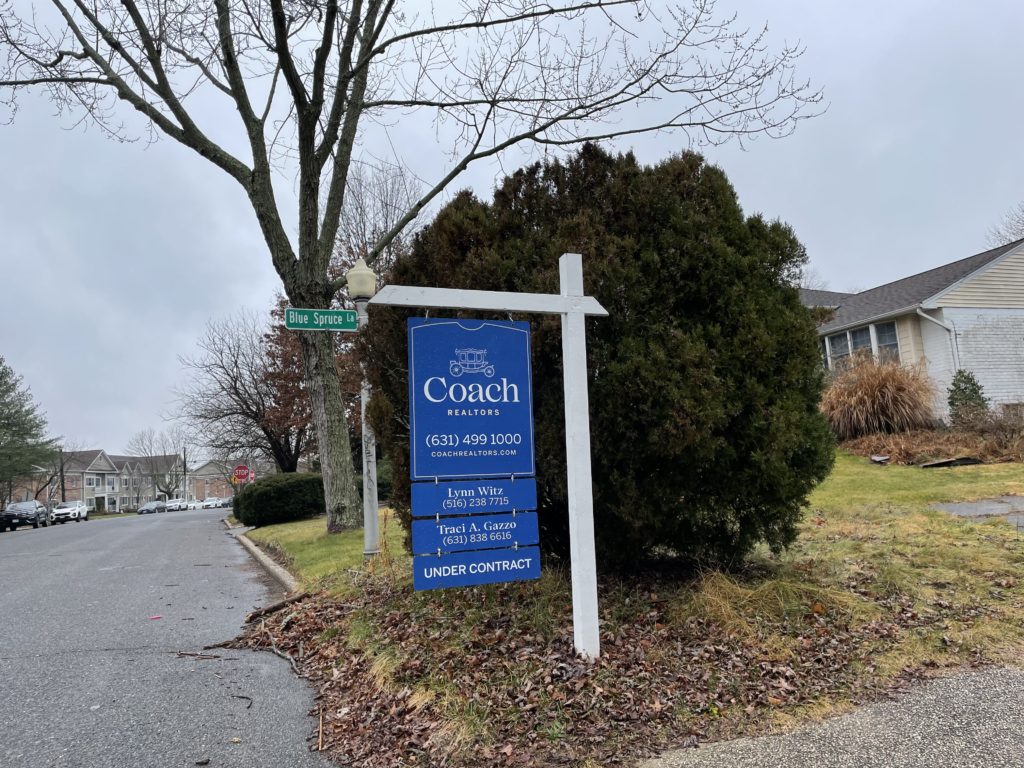
Pictured: A home that is currently under contract in Western Suffolk County. Overall, the available inventory of homes on Long Island has plunged, intensifying cries for alternative sources of housing. (Photo Source: Richard Murdocco/The Foggiest Idea)
But eroding localized control—better known as home rule—is a dangerous precedent because it upends the sovereignty of local municipalities. State-mandated development threatens the ability for individual communities to curb growth wisely, which is essential in a region that is beholden to a sole-source aquifer and is beset by other infrastructural limitations.
The downstate response to the ADU proposal was swiftly explosive, drawing ire across geographic and bi-partisan lines.
Nassau County County Executive Bruce Blakeman, a Republican, did not mince words. “It’s an attack on the suburbs,” he said. “It’s an attack on suburban way of living.”
Representative Tom Suozzi, a Democrat from Glen Cove whose Congressional district stretches from Queens to Suffolk County, denounced the ADU initiative. “Governor Hochul’s radical proposal would take away zoning control from municipal governments, erode local government authority, and end single-family housing across New York,” he claimed. “Hochul’s plan to eliminate home rule is not what we need. I support affordable housing, building up around downtown train stations, and helping the homeless. I oppose eliminating home rule and ending single-family housing.” Suozzi is stepping down from Congress to challenge Hochul in a Democratic primary this fall.
Town supervisors from the East End to western Nassau County have also presented a united front against the proposal.
“Under Governor Hochul’s plan, every town, village and county overnight would lose the important zoning protections that keep them from looking like the crowded neighborhoods of the Bronx, Queens and Brooklyn,” declared Brookhaven Town Supervisor Ed Romaine during a recent press event that brought officials together across regional and governmental lines. “That’s not what the residents of Brookhaven Town want. This wrongheaded plan will not solve our affordable housing plan, but it will devalue the homes and quality of life in our neighborhoods.”
Even Patchogue Village Mayor Paul Pontieri, whose locality is regarded by builders and planners alike as a fine regional example of smart transit-oriented growth, spoke out against the ADU idea.
“Once home rule on this issue is struck down and accessory apartments become legal everywhere, a village like Patchogue will suffer greatly,” said the mayor. “I join my fellow elected officials in opposition to the Governor’s proposal and ask that she reconsider this misguided plan.”
The Association of Towns of the State of New York, an organization founded in 1933 whose membership is comprised of the executives that run the majority of New York’s 932 townships, expressed cautious support for easing restrictions against ADUs, but they throttled back their full-throated support because they fear the specter of diminished local controls.
“We would rather see something like an incentive for ADU zoning or have various exceptions allowed in the interest of public health, safety and welfare, rather than simply overriding local zoning laws,” Sarah Brancatella, the association’s legislative director and counsel, recently told Newsday’s Michael Gormley.
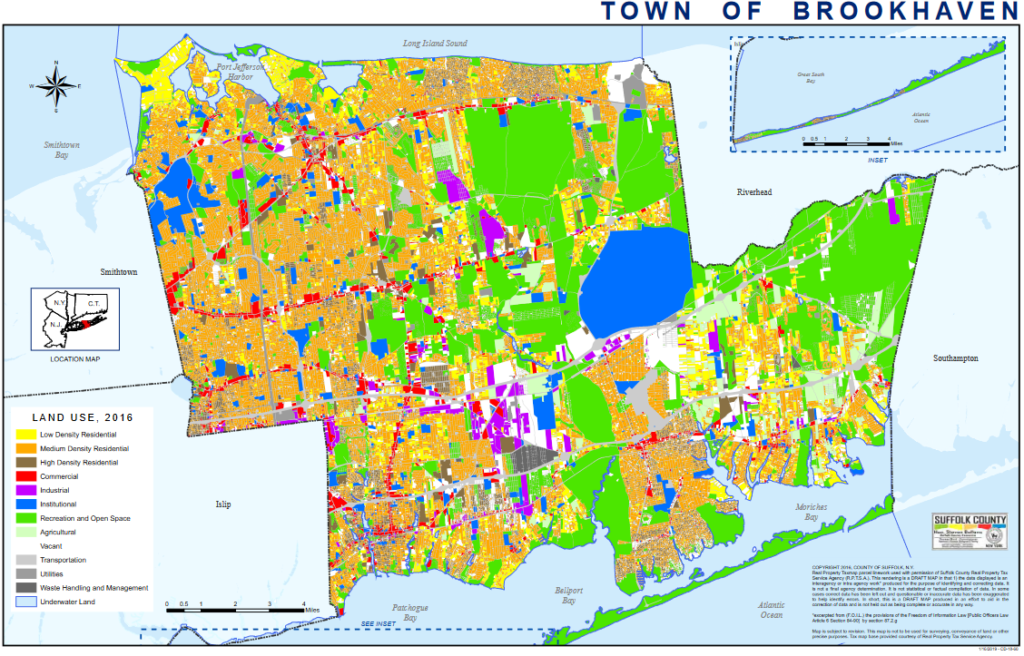
Pictured: A map of land use throughout the Town of Brookhaven. Areas shaded yellow and orange represent low to medium density single-family neighborhoods. (Source: Suffolk County)
To political insiders well-versed in these matters, the ADU act was a surprising move from the Buffalo-based governor who is seeking to build downstate support in what’s shaping up to be a fiercer than expected election year.
“Hochul did not line up support in advance,” as Newsday’s Editorial Board noted in an editorial that was as much scathing as it was perplexed. “Many local advocates who have worked tirelessly on the slow slog to create more housing say they weren’t aware it was coming until a State of the State news release and even then, they didn’t know the details,” the board wrote. “No effort by the executive chamber to seek input, address roadblocks or develop a coalition of backers was evident.” Newsday went on to advocate for more measured zoning incentives to encourage growth that would be far less intrusive against local home rule.
Unsurprisingly, the real estate industry and builders, both large contributors to Hochul’s campaign coffers, are excited at the prospect of easing developmental restrictions, and they have been galvanizing support for the measure, framing it as less about streamlining the governmental process, and more about addressing social demographic issues.
Although the relatively sudden push for these kinds of apartments caught most observers by surprise, a look at the broader dynamics in Albany reveals that the latest moves have been long coming. In the post-Andrew Cuomo era, an emboldened state Senate and Assembly are now working frantically to flex their political muscle by enacting more progressive initiatives as the majority of the state’s legislative leadership lurches increasingly leftward.
Such moves may be out-of-sync with New York voters, especially as the perception of increasing crime becomes layered with a perceived threat against the sanctity of private property rights.
But with the balance of power in the capital now tilting towards New York City, the regional nuances of suburban policy-making have fallen to the wayside—and their lack is exacerbated by the rightward shift of local government on Long Island following the 2021 elections.
Already isolated from the halls of power in Albany, Long Island’s political leadership could further alienate the state as they lean right.
So, given the political winds as of late, local residents should not ask themselves will ADUs begin to pop up next door, but when.
Richard Murdocco is an award-winning columnist and adjunct professor in Stony Brook University’s public policy graduate program and School of Atmospheric and Marine Sciences. He regularly writes and speaks about Long Island’s real estate development issues. Follow him on Twitter @thefoggiestidea.
You can email Murdocco at Rich@TheFoggiestIdea.org.

